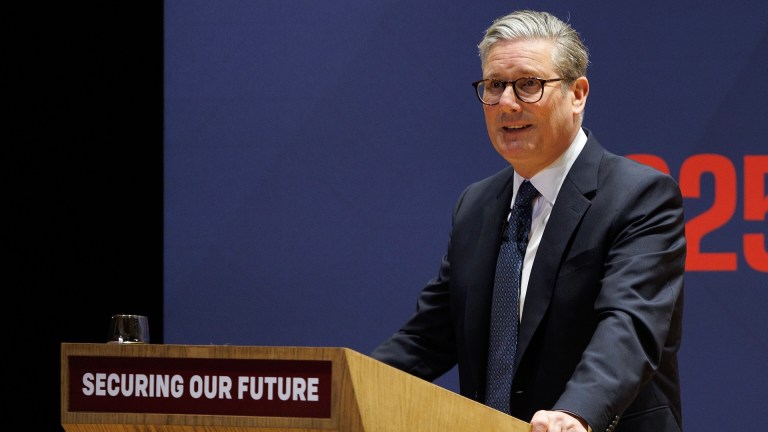Imagine this: a company that leaks more than half a billion litres of drinking water a day, dumps sewage into rivers, and racks up billions in debt – yet rewards its CEO with a £190,000 bonus, taking the salary to £2.3 million. Welcome to the dystopian world of the UK’s privatised water industry.
Just weeks ago, a group of plucky citizens attempted to make a symbolic arrest of Thames Water executives. It may have seemed dramatic, but frankly, it was proportionate. What we’re witnessing isn’t just incompetence – it’s systemic failure wrapped in criminal negligence. When an industry’s behaviour warrants a prison sentence more than a bonus, you know something is deeply rotten.
Read more:
- It will take 700 years to replace UK’s ageing water network at current pace: ‘A wholesale betrayal’
- The sewage crisis is your fault: How water firms use same deceptive tactics as Big Oil and Big Tobacco
- Labour has vowed to cleaning up Windermere – but our fight for a sewage-free lake is not over
Let’s talk facts. Thames Water openly admits to losing an embarrassing amount of drinking water every single day through leaks. Simultaneously, the company warns that London could face catastrophic water shortages, costing the economy £500m a day. The same company has just been granted another £3 billion in debt and is now seeking another £4bn equity bailout, with customers left to foot the bill.
Last week, Thames Water admitted that senior managers were in line for “substantial” bonuses linked to the emergency £3bn loan. It has since withdrawn plans under government pressure – but the episode exposed how the privatised model continues to reward failure.
This is not just about broken pipes – it’s about a broken system. United Utilities recently reported that its reservoirs are at just 69% capacity just as we are warned of a looming drought after the driest spring on record. That’s not just a weather story. It’s the result of decades of underinvestment and deregulated greed. Since privatisation, water companies have paid out billions in dividends to shareholders while neglecting basic infrastructure upgrades and climate adaptation.










